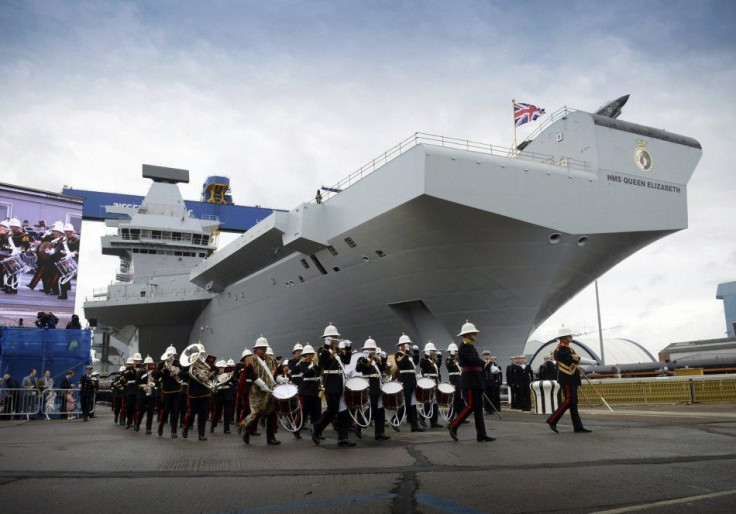Russian Warship Tracked by UK’s Royal Navy in English Channel: Russia Claims It was on its Way Back to Russian Port

The British Royal Navy has intercepted a Russian frigate and monitored its passage through the English Channel. The intercepted Russian ship was Yaroslav Mudry--the Neustrashimy class frigate was on its way back from a Mediterranean deployment.
The Russian Navy's website says the ship was designed for protecting combat vessels from attacks, search, detection and tracking of submarines and also for hitting enemy ships besides providing cover for land operations, reports Sky News.
On Tuesday, the Russian ship was tracked by British frigate HMS Argyll, a Type 23 frigate with advanced Artisan radar, sensors and Lynx helicopter back up. It located the Russian warship while it was passing within 20 miles off the Kent coast in the Strait of Dover.
A Royal Navy spokeswoman did not reveal on how long the ship was tracked but said the U.K. Naval authorities took over from French surveillance and tracked the Russians on the U.K. coast consistently.
Not Hostile
According to the Royal Navy’s spokeswoman, the Russian ship's movement through British waters was "not hostile or out of routine" and added that "Under the UN Convention of the Law of the Sea of 1982, right of innocent passage to all warships through territorial waters is allowed, provided it is not prejudicial to peace, good order or security of the coastal state. Submarines and other underwater vehicles are required to navigate on the surface and to show their flag.”
The news of intercept comes a few months after NATO warned that the planes of its member states had been scrambled 400 times in 11 months by Russia. The NATO states detected a 50 percent rise in suspicious Russian military air activity around Europe compared to the same period in 2013. That included a number of high-profile incidents including incidents of RAF jets intercepting Russian aircraft approaching the U.K airspace.
Important Frigate
Britain's HMS Argyll is based in Plymouth. It is the longest-serving frigate of her type in the Royal Navy. During recent deployments to the Caribbean and North Atlantic on patrol missions, its crew seized drugs worth £77 million. Bulk of its crew had just returned from a deployment prior to Christmas. Commander Paul Hammond, commanding officer of HMS Argyll, said: "We are one of the Royal Navy’s high readiness ships and we knew we could be called upon to respond a range of duties, such as monitoring a Russian warship, at short notice."
Russian news agency RT reports that the Russian frigate was on its way to the Baltic Sea, while it was escorted through the English Channel by the Royal Navy. It quoted the Russian Western Military District, a strategic command of the armed forces, which said Neustrashimy-class frigate Yaroslav Mudry will arrive at the permanent base by February 23.
Long Journey
Yaroslav Mudry left its main naval base in Baltiysk on August 9, 2014 and since then it has travelled 25,000 nautical miles and visited 9 countries including Spain, Pakistan, Malaysia and Syria. At the Mediterranean Sea, the frigate participated in training with other Russian warships-part of a permanent task force set up in April 2014. Russia also maintains some naval presence in the Mediterranean at Syria's Tartus port.
The Russian Western Military District updated that currently the crew of the neustrashimy-class frigate has begun the passage of the English Channel. After that the ship will pass through North Sea and Baltic Straits before reaching its permanent base by February 23 – Defender of the Fatherland Day.
(For feedback/comments, contact the writer at kalyanaussie@gmail.com)






